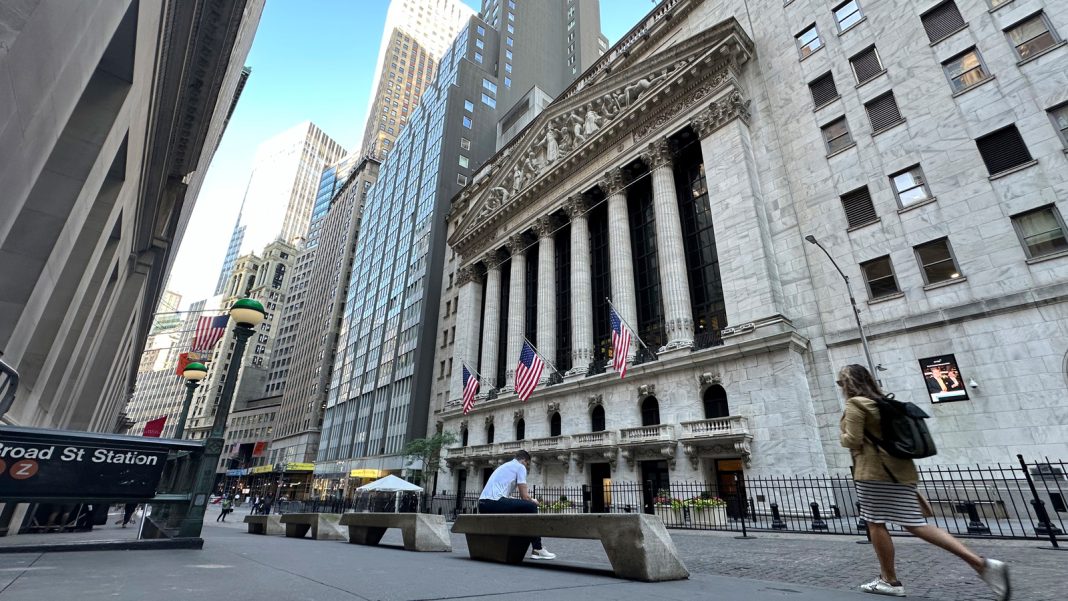Consumer prices in the United States saw a 3.3% rise in May compared to the previous year, according to recent data. While this represents a slight easing from the previous month, it still surpasses economists’ expectations. The release of this data coincides with the Federal Reserve’s impending decision on whether to adjust its benchmark interest rate.
It is worth noting that price increases have significantly slowed down from their peak of around 9%. However, inflation continues to remain more than a percentage point higher than the Federal Reserve’s target rate of 2%. For nearly a year, the Fed has maintained interest rates at their highest level since 2001, with the hope that elevated borrowing costs would slow down economic activity, reduce consumer demand, and lower prices. Surprisingly, the opposite has occurred, as the economy has remained strong and price increases have largely stalled.
The recent jobs report released by the U.S. Bureau of Labor Statistics further exemplifies the resilience of the economy. The report revealed that May experienced blockbuster hiring, exceeding the average number of jobs added each month over the past year. Additionally, average hourly wages increased by 4.1% over the year ending in May, surpassing the pace of inflation. This suggests that workers’ spending power has grown even as prices continue to rise.
Although this data is positive news for workers, policymakers may be concerned. They fear that rising wages could prompt businesses to raise prices in order to cover the added labor cost. This potential consequence highlights the delicate balance that needs to be struck in managing inflation and economic growth.
At the beginning of 2024, economic output experienced a notable slowdown but continued to grow at a solid pace. As a result, the Federal Reserve has adjusted its forecast and no longer expects three interest rate cuts by the end of the year. Fed Chair Jerome Powell emphasized during a press conference that greater confidence in sustainable downward inflation is necessary before any interest rate adjustments are made. Therefore, economists anticipate the Fed to maintain interest rates for the seventh consecutive time at the conclusion of its meeting on Wednesday.
The Federal Reserve faces a dilemma in navigating inflation and interest rates. Cutting interest rates too quickly could potentially trigger a rebound of inflation. On the other hand, sustained high interest rates may exert downward pressure on economic growth and potentially lead the U.S. into a recession. Striking the right balance is crucial to ensure both stable prices and sustained economic expansion.
The issue of rising prices has gained attention from voters, especially as the U.S. approaches a closely contested presidential election in the fall. A survey conducted by ABC News/Ipsos revealed that 85% of U.S. adults consider inflation an important issue, making it the second-highest priority among the respondents. Additionally, the economy, which is closely linked to individuals’ perceptions of price increases, emerged as the top priority. Interestingly, those surveyed expressed a higher level of trust in former President Donald Trump over President Joe Biden regarding both the economy and inflation.
Elaine Kamarck, a senior fellow at the Brookings Institution, highlighted the significance of inflation, stating, “Inflation is something that affects absolutely everybody, whether they’re rich or poor.” The impact of rising prices on individuals’ daily lives underscores why it is such a pressing concern for voters.
In conclusion, the recent data on consumer prices in the United States reveals a slight easing but still remains higher than economists’ expectations. The strong economy and stagnant price increases pose a challenge for the Federal Reserve in deciding whether to adjust interest rates. The potential consequences of wage increases and their impact on prices further complicate this decision. As inflation emerges as an important issue for voters, it will undoubtedly play a role in the upcoming presidential election.

